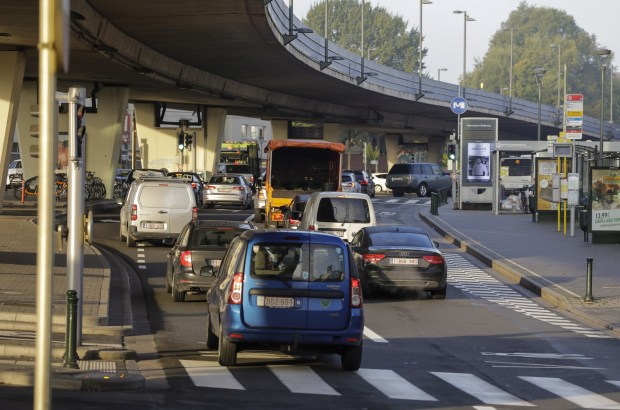Diesel prices go up again on Tuesday by €0.03, underlining fears among top economists of a tough winter for household and business finances.
On Monday, Belgium’s economy ministry announced the increase in maximum fuel prices at the pumps, with a litre of diesel now capped at €1.763 and petrol also €0.01 more expensive.
The latest leap comes as the annual eurozone-wide inflation was estimated at 5% in December; in Belgium, this was even higher at 5.71%. Prior to the pandemic, political and economic leaders in the 19-country currency zone prided themselves on capping inflation at or around 2%.
“For the past 15 years, people generally interpreted shifts – usually in energy prices – to be temporary, one-off shocks,” said Peter Vanden Houte, chief economist with ING. But in the post-pandemic economy, such increases will likely become more normal.
"Data from the European Commission show that an overwhelming majority of households expect high inflation and budget accordingly," he underlined to The Brussels Times.
Inflation driven by energy concerns
Already on Sunday, Wouter de Geest – a regional CEO for chemicals giant BASF and Flemish Employers Federation head – called for significant change in the way Belgium calculates automatic wage increases. He supported a “socially-modulated” approach, focused on protecting lower-income groups.
Meanwhile in Frankfurt, European Central Bank executive board member Isabel Schnabel invited euro governments to act “to protect the most vulnerable parts of society from higher energy prices in a way that does not delay the green transition.”
Related News
- Belgium’s economic growth will ‘lose momentum’ in 2022
- Belgian savers lost €22 billion in purchasing power last year
- Belgium in Brief: Saving – more effort than it's worth?
In Belgium, the question of renewable energies has been moved up the agenda as a decision was finally reached to shut down the country’s seven nuclear electricity plants.
Energy prices in Belgium rose by 42% in 2021 and Vanden Houte acknowledges that inflation expectations tend to become “ingrained”: “My best guess at this moment is that throughout the first quarter of 2022 inflation will remain quite high, but this will then decline."
Overall, the economist predicted inflation of around 4.5%, "but some things are trickier to forecast, such as the impact of Russian geopolitics on already more volatile natural gas prices."

